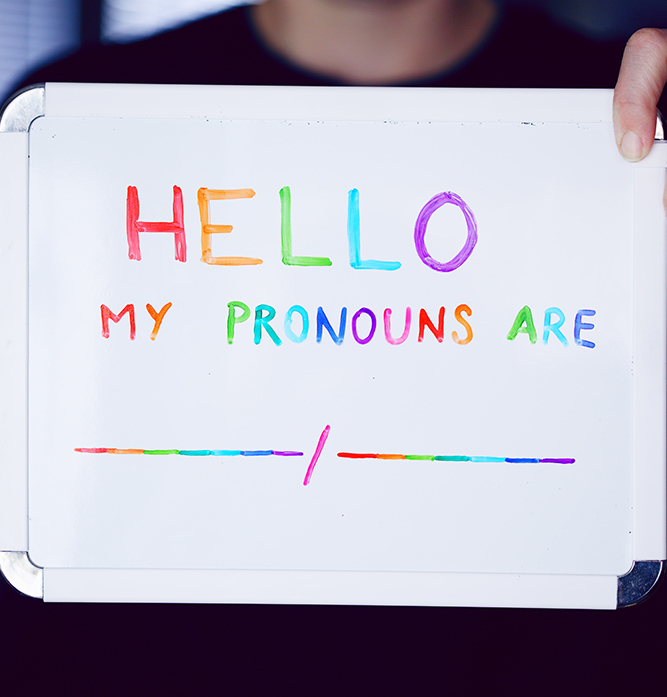Accommodating Gender Pronoun Inclusivity and the Rising Enrollment of Trans and Nonbinary Students in Higher Education
By Elysian Alder | Editor-in-Chief

Across the United States, high school and college students are increasingly identifying as transgender or nonbinary, with studies revealing that approximately 2% of high school students and nearly 6% of college students fall somewhere within these identities. About 3% of students specify using pronouns that challenge the traditional binary perspective, like the singular “they/them” and “neopronouns”—a category of new pronouns such as “xe/xem” and “ze/zir” that are used in place of conventional identifiers. This increasing diversity in gender identity among students raises the question of how colleges and universities can effectively accommodate and promote inclusivity for individuals in these communities.
“I think that knowledge is power,” said Wren Stoddard. Stoddard has been president of the Sexuality and Gender Alliance club at Mount Wachusett Community College for the past two years, in addition to being the first openly trans-identifying president of the student government. “Teaching our staff members and our faculty how to relate and how to interact with people who are different from them in any form is only going to help our community and help our students feel more accepted at the Mount.”
Prior to the start of the fall 2023 semester, faculty and staff members at the Mount were invited to a professional development seminar presented by Dr. Julie Elkins, an educator and prominent figure in LGBTQ+ issues for over two decades, and co-founder of the Gender and Sexuality Knowledge Community for the National Association of Student Personnel Administrators (NASPA). The focus of the seminar was on how to create an inclusive learning environment while educating faculty and staff about the importance of pronouns, gender identity, and chosen names. Elkins shared tools, strategies, and resources to equip attendees with the knowledge and skills needed to create a sense of belonging and provide a more supportive educational environment for all students at the Mount.
Associate Professor Kara Roche attended the seminar and found that the biggest takeaway for her was actually more simple than one might think. “Dr. Elkins shared a strategy for this of simply asking and making a notation of the student’s preferred pronouns right on our class member rosters,” explained Roche. “So this year, I made a concerted effort to ask each student to write their preferred pronouns directly on the roster themselves next to their name, along with any names they’d prefer. This ensured I’d learn their names with the pronouns right off the bat.”
“I feel as though professors who introduce themselves with their pronouns [also] show an understanding of just how important it is to individuals to use gender-affirming language such as pronouns,” said Stoddard. “It helps students see that our college is working to be a more inclusive environment to everyone.”
While Massachusetts doesn’t mandate LGBTQ-inclusive curricular standards, the state is one of the 20 in the country where state law explicitly forbids discrimination and exclusion in schools based on sexual orientation and gender identity. The existence of legal frameworks like these shows the vital role college faculty and staff play in upholding an inclusive environment through their interactions with students.
“As educators, if we want respect, we have to give it,” said Roche. “I always thought I was doing a sterling job at that. But [Dr. Julie Elkins’] presentation showed me that there was much more I could and SHOULD be doing. A student who feels safe and accepted can celebrate their best selves, and that, in turn, allows them to learn, to open, to take chances. Normalizing individuality gives us permission to be ourselves. And there’s nothing more important.”
Comments are closed.